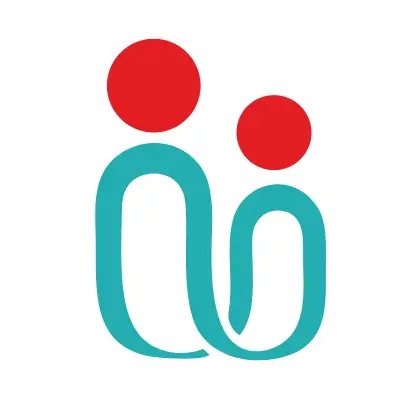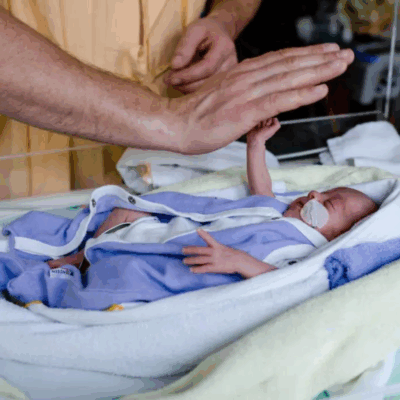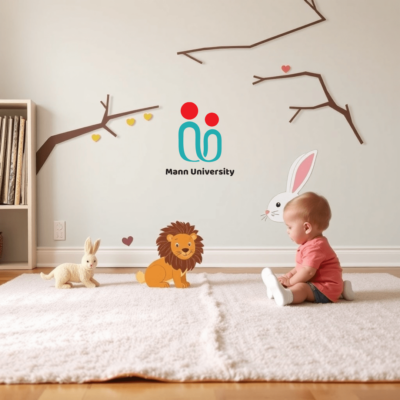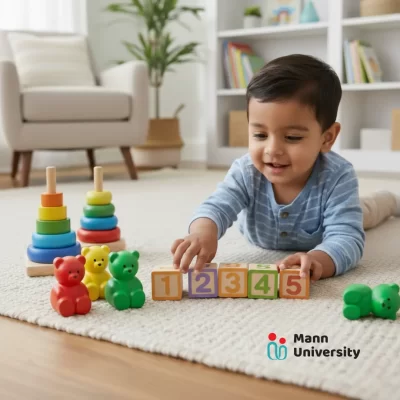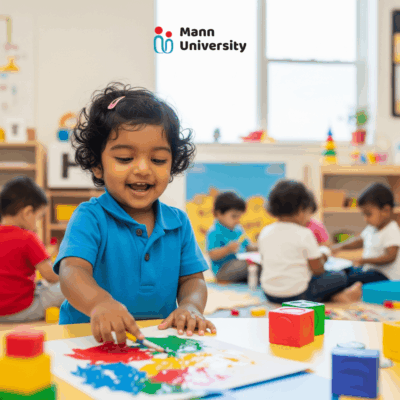Building a Brighter Future: The Impact of Mann University’s Early Childhood Development Programs
The future of a child is greatly influenced by their early development. Children’s brains develop quickly during the first few years of life, and they are very open to learning and building relationships. Building the groundwork for development on all levels—physical, intellectual, emotional, spiritual, linguistic, creative, moral, social, & cultural—takes place during this crucial time. Early experiences have a significant influence on a child’s overall development and future success, according to research. Thus, funding high-quality early childhood development programs is crucial to giving kids the best start in life.
Key Takeaways
- Mann University’s early childhood development programs focus on nurturing physical, intellectual, emotional, spiritual, linguistic, creative, moral, social, and cultural development in children.
- Quality early childhood programs have a significant impact on children’s future success, shaping their long-term outcomes and well-being.
- Supporting families and communities through early childhood development is crucial for creating a brighter future for children and society as a whole.
- Educators play a vital role in shaping children’s futures by providing a nurturing and stimulating environment for their holistic development.
- Investing in early childhood education not only benefits children but also has a positive impact on society and the economy in the long run.
Because Mann University understands the importance of early childhood development, it has created extensive programs that support young children’s overall development. Mann University’s method seeks to give kids a well-rounded and enriching experience during their formative years by emphasizing different facets of development, such as the physical, intellectual, emotional, spiritual, linguistic, creative, moral, social, and cultural domains. All-inclusive Education for Success in the Future.
The university fosters an atmosphere where kids can flourish & realize their full potential by combining play-based learning, interactive exercises, & individualized attention. Children are given a thorough education that equips them for future academic and personal success by Mann University, which incorporates a variety of developmental domains into their curriculum. cultivating an enthusiasm for learning. The university’s strategy also highlights the value of encouraging a passion for learning & constructive social interactions. Mann University fosters the development of vital abilities in kids, including creativity, empathy, critical thinking, and problem-solving, by providing a nurturing & engaging environment.
long-term development and growth. In addition to helping the kids in their early years, this strategy lays the groundwork for their future development. Children’s future success in a variety of areas is significantly impacted by high-quality early childhood programs. The groundwork for a lifetime of good health is laid by these programs, which encourage physical well-being and healthy habits.
| Topic | Data/Metrics |
|---|---|
| Physical (PQ) | Improved motor skills, healthy growth and development |
| Intellectual (IQ) | Enhanced cognitive abilities, language development, problem-solving skills |
| Emotional (EQ) | Increased self-awareness, empathy, and emotional regulation |
| Spiritual | Development of values, ethics, and sense of purpose |
| Linguistics | Language acquisition, communication skills |
| Creative | Enhanced creativity, imagination, and artistic expression |
| Moral | Understanding of right and wrong, ethical decision-making |
| Social | Improved social skills, cooperation, and conflict resolution |
| Cultural | Appreciation for diversity, cultural awareness |
| Creating a Brighter Future | Higher academic achievement, increased earning potential, better health outcomes |
| Investing in Early Childhood Education | Reduced crime rates, improved workforce productivity, economic growth |
Intellectually, they foster critical thinking abilities and cognitive growth, setting kids up for success in the classroom. Emotionally, high-quality programs promote empathy, self-control, and resilience, all of which improve mental health outcomes. They foster a spiritual sense of purpose and connection to the world and other people. Early childhood programs foster language development and communication abilities, which are critical for success in school and in social situations. In terms of creativity, they offer chances for individual expression and artistic investigation.
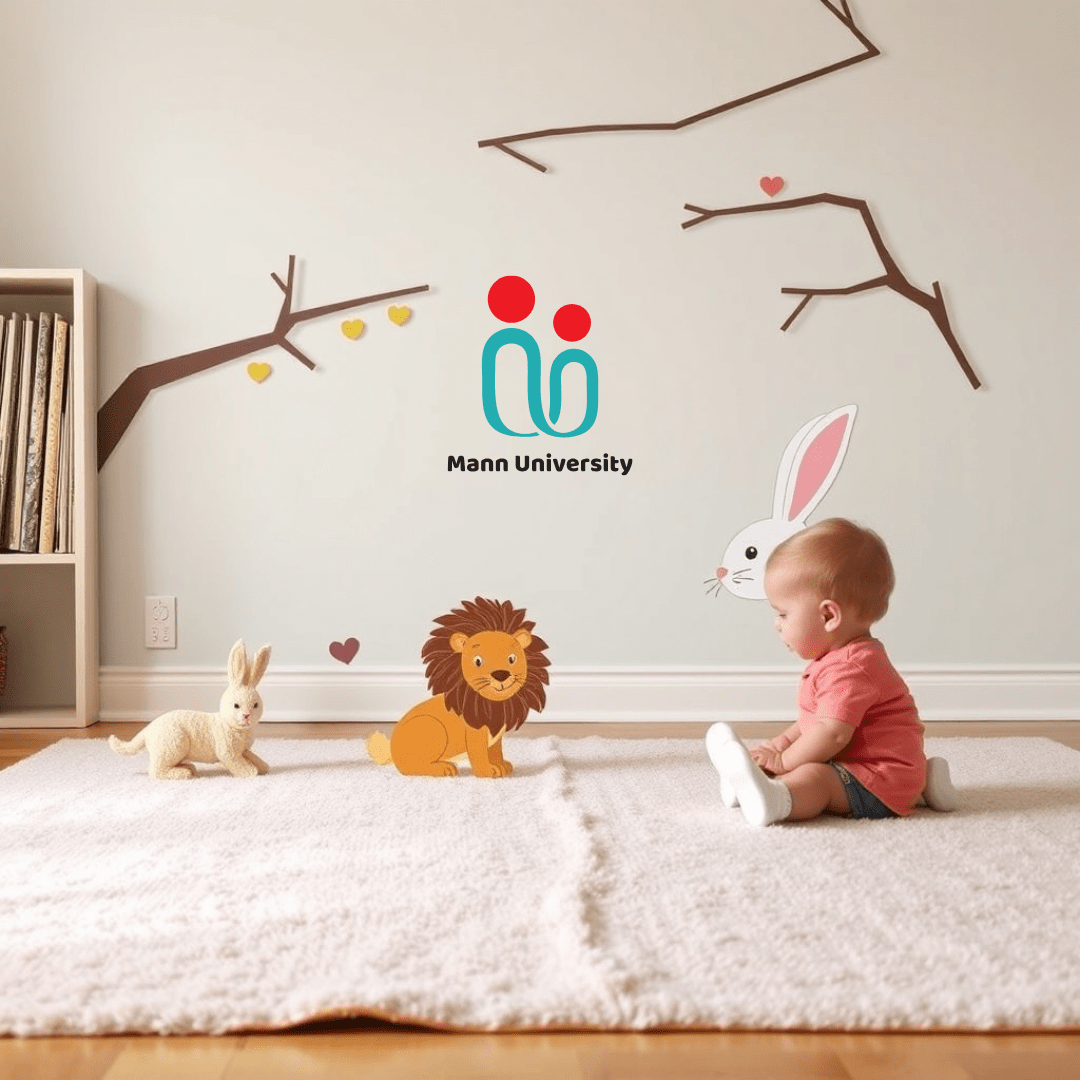
In terms of morals, these programs teach virtues like responsibility, kindness, & honesty. Culturally, they celebrate diversity and foster an appreciation of various customs and viewpoints, while socially, they encourage healthy relationships with adults and peers. High-quality early childhood development programs benefit not only the individual child but also the family and the community.
These programs enable families to establish caring environments that support their children’s general wellbeing by offering resources & support to parents and other caregivers. Also, through cultivating robust community partnerships and engagement, early childhood programs help build networks of support that benefit everyone in society. Families are actively involved in their children’s educational journeys, demonstrating Mann University’s dedication to early childhood development outside of the classroom. Through the provision of parent education workshops, family events, and community outreach programs, the university fosters a sense of community & strengthens the ties between the home and school. In addition to improving the standard of early childhood education, this cooperative approach has a positive knock-on effect on families and communities.
Teachers are essential in determining the course of children’s lives because they give them the direction, encouragement, & information they require to succeed. The varied needs of young students in the areas of physical, intellectual, emotional, spiritual, linguistic, creative, moral, social, & cultural domains are all understood by Mann University’s trained teachers. Teachers are better able to adapt their methods to each child’s needs when they are aware of their individual strengths and areas for development. Mann University teachers also act as role models and mentors, encouraging kids to reach their full potential. By creating a supportive and inclusive learning environment, teachers give kids the chance to grow in self-assurance and encourage them to take on new challenges.
Mann University educators make a substantial contribution to creating the foundation for children’s long-term success in a variety of spheres of their lives through their commitment and knowledge. Long-term advantages that go well beyond the early years can be obtained by funding high-quality early childhood development programs. Early access to high-quality education increases a child’s likelihood of achieving better academic results throughout their school years. Also, they exhibit enhanced emotional intelligence, better social skills, and increased resilience in the face of adversity.
Also, early childhood development programs have positive effects that persist into adulthood. People who have taken part in these programs are more likely to improve their physical and mental health, find steady work, and give back to their communities. Early childhood development programs put people on a path to a better future by establishing a solid foundation for lifelong learning & personal development.
Early childhood education spending has a significant impact on both the economy and society. Every child, regardless of background or situation, has an equal chance to thrive in high-quality early childhood development programs, which helps to lessen societal inequalities. These initiatives can lessen social problems like poverty, crime, and health inequalities by attending to developmental needs at an early age. Investing in early childhood education has substantial financial returns.
Studies have demonstrated that every dollar spent on high-quality early childhood programs leads to significant cost savings in areas like healthcare, juvenile justice system expenses, & special education services. Also, those who have benefited from early childhood education are more likely to join the workforce and contribute to stability and economic growth. Finally, by addressing children’s physical (PQ), intellectual (IQ), emotional (EQ), spiritual (SQ), linguistic, creative, moral, social, and cultural development, Mann University’s early childhood development programs are essential to creating a better future for kids. Mann University helps create well-rounded people who are prepared for success in a variety of spheres of their lives by acknowledging the significance of holistic development during the formative years & putting comprehensive approaches to early childhood education into practice. Beyond just helping individual kids, families, communities, society at large, and the economy as a whole all benefit from long-term investments in high-quality early childhood development.
FAQs
What is early childhood development (ECD) and why is it important?
Early childhood development refers to the physical, cognitive, linguistic, emotional, social, and cultural development that occurs in children from birth through age 8. It is a critical period for laying the foundation for lifelong learning, behavior, and health. Quality ECD programs can have a significant impact on a child’s future success and well-being.
What is Mann University’s approach to early childhood education?
Mann University’s approach to early childhood education emphasizes a holistic development of children, focusing on physical, intellectual, emotional, spiritual, linguistic, creative, moral, social, and cultural aspects. The university’s programs are designed to support families and communities, and to empower educators to shape children’s futures.
What is the impact of quality early childhood programs on children’s future success?
Quality early childhood programs have been shown to have long-term benefits on children’s physical, intellectual, emotional, and social development. Children who participate in such programs are more likely to succeed in school, have higher earning potential as adults, and experience better health outcomes.
How do early childhood development programs support families and communities?
Early childhood development programs provide support and resources to families, helping them create nurturing and stimulating environments for their children. These programs also contribute to the overall well-being and development of communities by fostering a generation of healthy, educated, and productive individuals.
What is the role of educators in shaping children’s futures?
Educators play a crucial role in shaping children’s futures by providing a supportive and enriching learning environment. They help children develop essential skills, values, and attitudes that contribute to their overall development and success in life.
What are the long-term benefits of investing in early childhood development?
Investing in early childhood development has long-term benefits for society and the economy. It leads to a more educated and skilled workforce, reduces healthcare and social welfare costs, and contributes to overall economic growth and stability. Additionally, it fosters a more equitable and just society.
